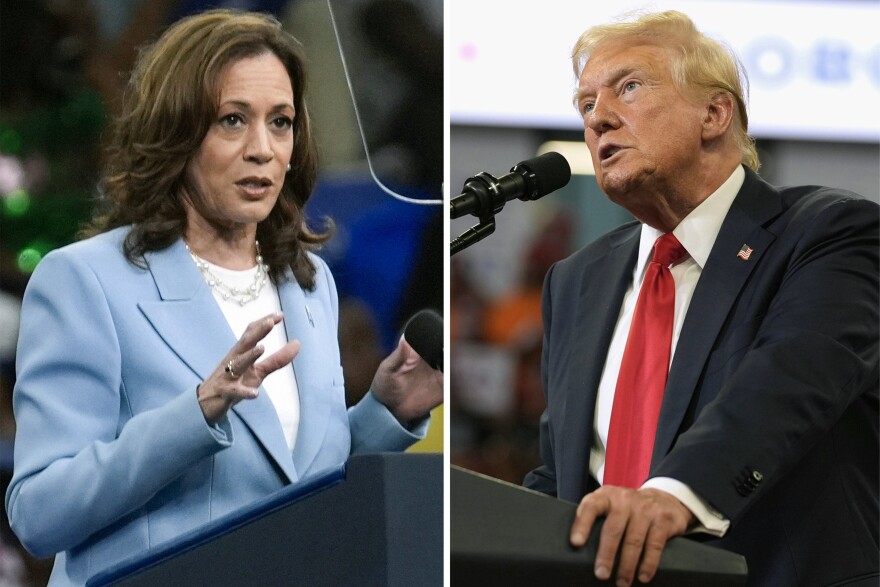As the 2024 presidential election heats up, the focus shifts to key battleground states, with Vice President Kamala Harris and former President Donald Trump gearing up for their first debate and the first ballots set to be mailed out after Labor Day.
September marks a pivotal moment in the campaign, with both candidates concentrating their efforts on crucial swing states. Harris is aiming to expand her reach beyond traditional Democratic strongholds, while Trump is reinforcing his campaign in the Upper Midwest states that were pivotal in his 2016 victory and his 2020 loss.
Voting in the 2024 election is set to commence this week, with the first ballots being mailed in North Carolina on Friday. This Sun Belt state is seen as vital for both campaigns. Early in-person voting will also start soon in Minnesota, South Dakota, and Virginia.
Harris has been actively campaigning in the Sun Belt, including a recent bus tour in Georgia and a visit to North Carolina with her running mate, Minnesota Governor Tim Walz. Walz emphasized the importance of North Carolina, stating, “It’s very difficult for a Republican presidential candidate to win the White House if they can’t win North Carolina.” Harris’ campaign has invested heavily in advertising in Savannah, spending approximately $1.7 million in recent weeks.
Despite these efforts, Harris remains the “clear underdog” in the race, according to a recent memo from her top campaign adviser, Jen O’Malley Dillon. She cautioned against complacency, highlighting Trump’s dedicated base and the significance of the upcoming September 10 debate.
Trump, meanwhile, is focusing on the “blue wall” states of Pennsylvania, Michigan, and Wisconsin, promising an economic revival. At a recent event in Michigan, Trump declared, “Your long economic nightmare will very soon be over,” signaling his commitment to the working class.
The candidates are also preparing for their debate, with Trump enlisting former Hawaii Democratic Representative Tulsi Gabbard to aid in his preparations. Harris is working with Philippe Reines, a former aide to Hillary Clinton who is playing Trump for debate rehearsals.
Polls indicate a tight race nationwide and in key swing states. A Wall Street Journal survey and a Quinnipiac University poll both show Harris and Trump neck and neck, with no clear leader. In Sun Belt states, recent polls show Harris and Trump in close competition, highlighting the ongoing uncertainty in the race.
The 2024 election has taken on a new dynamic following President Joe Biden’s decision to step aside, with Harris now leading the Democratic ticket. Democrats are optimistic about their chances, seeing the change in leadership as a potential advantage.
On the other hand, Republicans are critical of Harris’ economic proposals, arguing that her promises are insufficient given her current role as vice president. Republican vice presidential nominee Sen. JD Vance has criticized Harris for her economic record and proposals.
In response, Harris is launching a new bus tour focused on reproductive rights, starting in Palm Beach, Florida. The tour aims to counter Trump’s recent statements and promises related to reproductive health.
As the campaign unfolds, both candidates face scrutiny over their policy proposals and detailed plans. The upcoming debate on September 10 and the vice presidential debate on October 1 will be crucial in shaping the trajectory of the 2024 presidential race.









